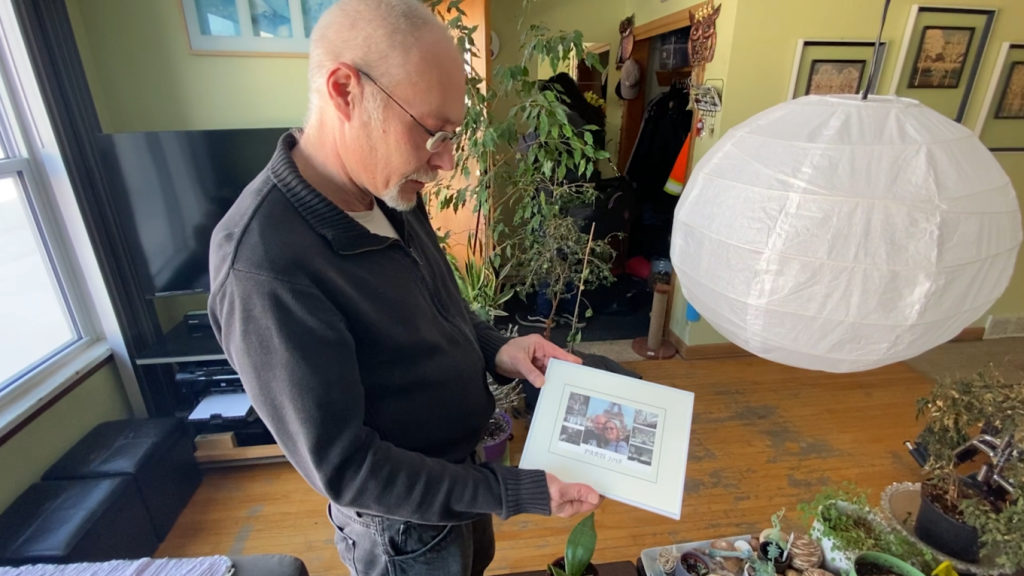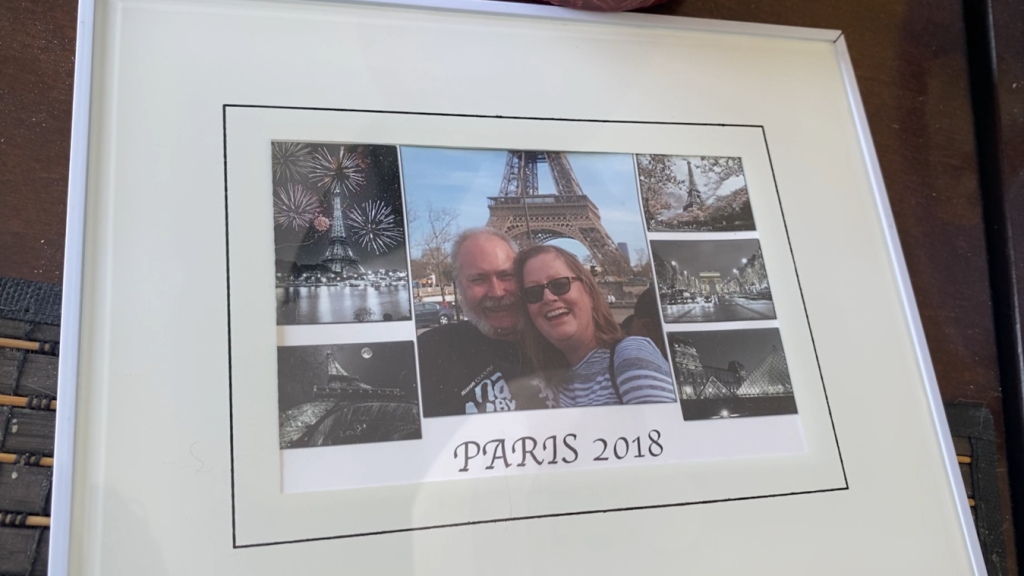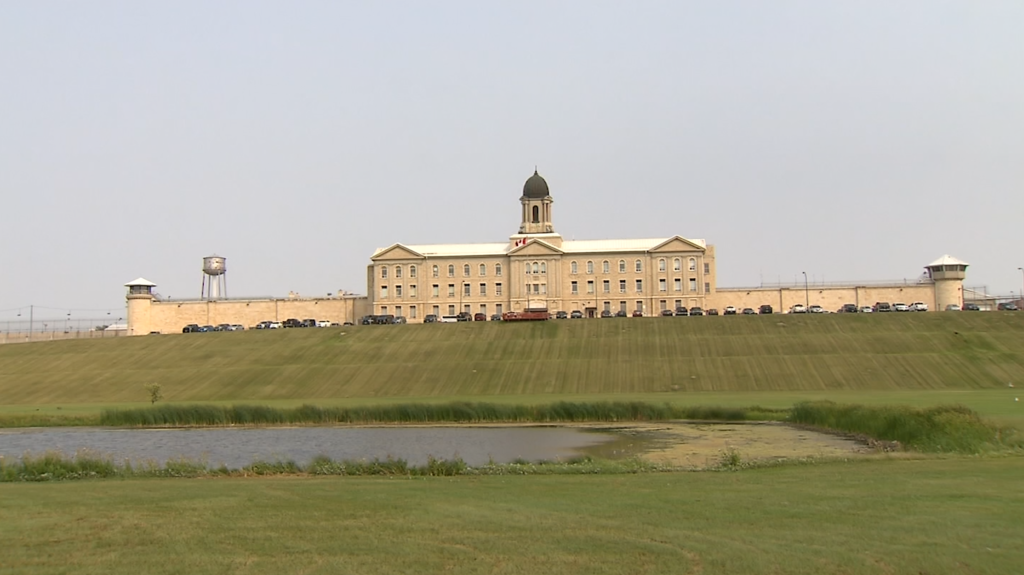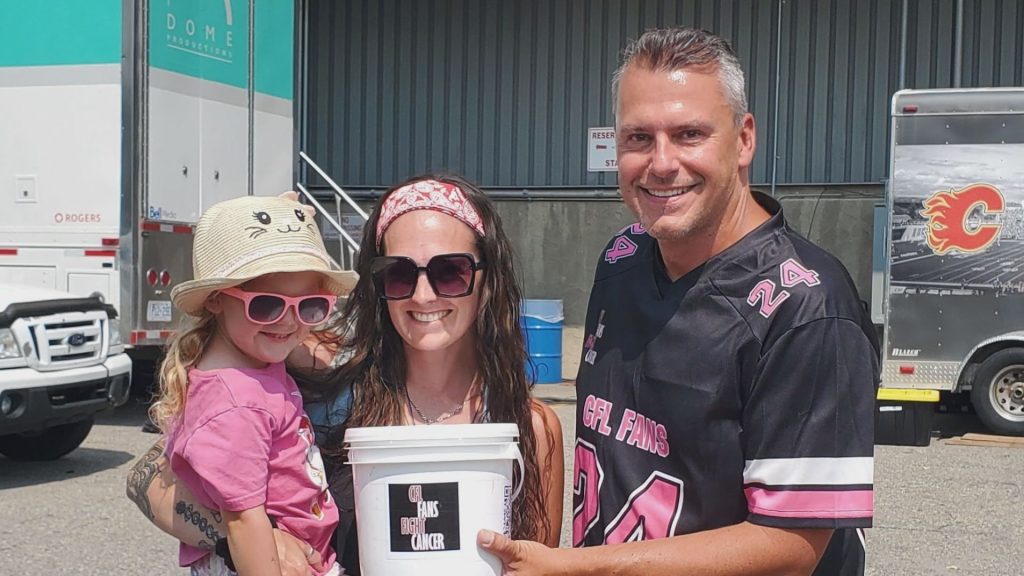‘Dehumanizing’: Terminally ill Winnipeg woman not getting palliative home care despite promise from hospital
Posted February 16, 2023 2:44 pm.
Last Updated February 16, 2023 6:50 pm.
Eric De Schepper kisses his 62-year-old wife Katherine Ellis as she lays in bed in their Winnipeg home.
Ellis has been battling stage 4 pancreatic cancer since November.
Schepper has been forced to care for his terminally ill wife alone, after promised regular home care visits never came.
“We are supposed to be giving her quality of life,” said the Winnipeg man. “This is the opposite of quality of life.
“This has caused distress; this has caused sorrow; this has caused undo hardship.”
Ellis was hospitalized at Winnipeg’s St. Boniface Hospital in January, but it was determined in her short stay that nothing could be done to save her.

Eric De Schepper kisses his terminally ill wife Katherine Ellis at their home on Feb. 16, 2023. (Credit:
That’s when Schepper decided to leave the hospital and receive palliative care at home. He says they were promised home care visits twice a week, but it’s been more than a month and they’ve yet to have a single visit.
“The only thing that I have been able to do over the past four weeks, even four-and-a-half weeks, is give her sponge baths, and wipe her up with hygienic wipes.
“My question is, how would anyone feel after four weeks of that treatment? That’s degrading, it’s dehumanizing, it’s disrespectful, it’s unacceptable.”



Schepper has been caring for his wife as best as he can, but he doesn’t have the ability to properly care for her. He went on leave from his work as he has been forced to dedicate all his time to caring for his wife.
“The system has failed us,” he said. “It’s not only failing us but failing hundreds and even thousands of other caregivers and individuals who are in palliative home care here in Winnipeg and in Manitoba.”
Palliative care underfunded, says physician
Palliative care physician Dr. Amit Arya says situations like these are heartbreaking, but it’s not uncommon.
“I regularly have patients that are promised a set number of hours through home care, which was already underfunded, and they weren’t getting enough hours in the first place, but even those promised hours can’t be delivered because of staffing shortages,” said Arya.
The physician says Canada’s population is growing rapidly and the federal government severely underfunds elder and palliative care in Canada.
He says many physicians are leaving palliative care to work in other parts of health care due to low wages.
“We know that about 90 per cent of Canadians actually want to die in their own homes, but only about 1-in-6 can achieve that,” he said. “Many people end up in acute care, in hospital for end-of-life care where they don’t want to be.”

Eric De Schepper holds his terminally ill wife Katherine Ellis’ hand at their home on Feb. 16, 2023. (Credit:
Arya says the health-care system as a whole is causing the suffering for Canadians, like Schepper and his wife.
“I’m not getting the resources that I am entitled to and the excuse is the manpower,” said Schepper. “My question is, fix it. I have no message that we don’t have manpower. It’s not helping me. It’s not helping the other people that are in the same situation.”
The Winnipeg Regional Health Authority says it is facing staffing shortages in the home care sector and is in touch with the family to schedule further services moving forward.








